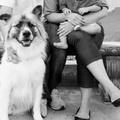Anyone who wasn’t actively helping the Jews and other displaced people in Nazi Germany were as culpable for the crimes against humanity as any of the SS soldiers we all like to vilify. The citizens of a country have the moral obligation to ensure that their government does not break international law and/or basic human rights.
Our soldiers are citizens first and soldiers second. Therefore, they have that same moral obligation as all of us. They are not robots that should “just do as they are told.” They need to make certain that what they do does not run afoul of what is right.
In that light, Lt. Ehren Watada’s decision not to deploy to Iraq should be seen not as a sign of disloyalty but as the ultimate sign of allegiance to his country. He believed that because the war in Iraq was unjust and based on lies it was his duty not to fight there. The Army ought to have respected his position and allowed him to deploy elsewhere. The military should be filled with more men and women like Watada. Instead, too often it seems that we have soldiers like those at Abu Ghraib or Mai Lai that don’t stop to think whether what they are doing is right.
Watada’s actions show that he believes in the ideals of our government and is willing to put his freedom on the line to uphold those principles. The same cannot be said for most of the people in this country. Americans as a lot have become passive. We as a group are no longer willing to stand up and hold the government accountable for its actions. We believe instead that our government will solve all our problems on its own – with or without us.
We must never forget that we the people shape the government. We the people need to make sure the government works for us – not the other way around. When our government does something wrong in our name, we the people must stand and raise our collective voices in concern and protest. We the people must actively be engaged in what is happening around us every day, not every two or four years.
Ehren Watada is a hero because he shows us the kind of citizen we all should be.
© 2007 Koji Steven Sakai






